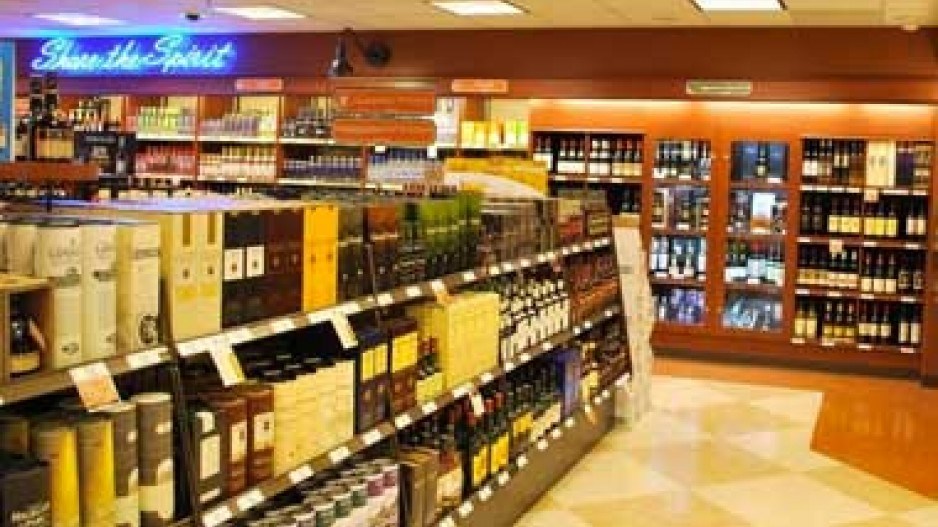Although the B.C. government never produced a business plan to justify the aborted Liquor Distribution Branch privatization, it did give bidders exclusive access to a library of more than 2,800 pages about the taxpayer-owned company, seen by Business in Vancouver. (To see a cloud-hosted copy of the documents, click here.)
The companies that responded to the April 30 request for proposals signed a non-disclosure form and were granted access to the so-called Virtual Documents Room via the BC Bid provincial procurement website. Inside was a library that described, in great detail, all facets of the taxpayer-owned Liquor Distribution Branch.
Appendix titles include "LDB Business Environment" and "Liquor Product Movement and Sales in B.C." The records include sales and expenses statistics going back to 2007, markup schedules, orders by wholesale customer, monthly budgets, shipping schedules, warehouse blueprints, equipment inventories, retail sales by sources, staff lists and lists of every establishment licensed to sell alcohol in the province.
The documents said LDB peak months are July, August and December and the company has 5,800 stock-keeping units but an additional 10,000 SKUs for wholesale customers. Inventory levels at distribution centres for insurance purposes are generally in the $30 million to $35 million range.
A report for the period ending March 31, 2011 said LDB had logged 658,136 total warehouse work hours and had 354.93 full-time equivalents (33.82 more than budgeted), not including the contracted truck fleet. It had processed 242,855 orders, 11,711,478 cases, 7,635,816 line items and 1,238,516 bottles. The hours were 110,000 more than budgeted but bottles 50,000 fewer than budgeted. The total employment expense was $21,423,517.
The Virtual Documents Room included a Corporate Insights July 2010 Wholesale Customer Survey, which said the LDB was exceeding 12% of wholesale customer expectations, meeting expectations for 74% and falling short of 14%. The weakest rating remained flexibility toward customer requirements.
"There are still 22% who find you poor or fair in this area," said the survey. "This is all part of the ongoing process of shifting from a process driven organization to a customer driven organization."
An impetus for the controversial privatization was outsourcing labour costs. The library contained descriptions of every B.C. Government and Service Employees' Union-represented staff position that the successful bidder was expected to assume under a Memorandum of Agreement negotiated a month after the privatization was announced on February 21.
The records reveal that the 508 distribution staff in Vancouver and Kamloops had an average 10.6 years of service and earned $21.26 per hour. The positions ran the gamut, from administrative, traffic, order, customer service and inventory clerks to building maintenance, logistics and operations managers. A document explains that the fully loaded benefits rate to be applied to labour wage rates was 27%, which included provincial and federal pension, Employment Insurance, extended medical and dental, group life insurance and WorkSafeBC.
Some of the records were already in the public domain, such as the RFP, annual service plan, B.C. Public Service Agency benefits guide and the BCGEU master contract with government.
Appendices to the bid mention that an email was sent by the Citizens' Services ministry to all proponents on May 29 reminding them that "agreements or arrangements with other proponents with respect to the NRFP or with respect to any agreement arising from the NRFP" were prohibited. The province wanted either disclosures or denials in writing by June 8.
"Any such activity will constitute a basis for disqualification and may also constitute a basis for the cancellation of the NRFP process," said the memo.
The controversial privatization was suddenly cancelled when the BCGEU and government reached a tentative agreement for a government-wide labour contract on September 27. BCGEU president Darryl Walker announced the end of the privatization the next day during the Union of B.C. Municipalities convention in Victoria. The government has not issued a report to summarize the bid process, which involved ContainerWorld, Exel, Kuehne + Nagel and Metro Supply Chain Group on the July 20-announced shortlist.
New briefing notes for liquor minister Rich Coleman and then-procurement minister Margaret MacDiarmid indicate Ernst & Young was hired in July to help evaluate proposals. The value of the E&Y contract has not been disclosed.
Having tried for months to access the documents via Freedom of Information, Business in Vancouver obtained the 2,887 pages after the Office of the Information and Privacy Commissioner intervened. The Citizens' Services Ministry was originally supposed to disclose the records on August 10, but invoked a unilateral extension to September 24 based on its wish to consult a third-party or other public body. The revised deadline came and went. After the OIPC intervened, the records were finally put in the mail on November 14.




